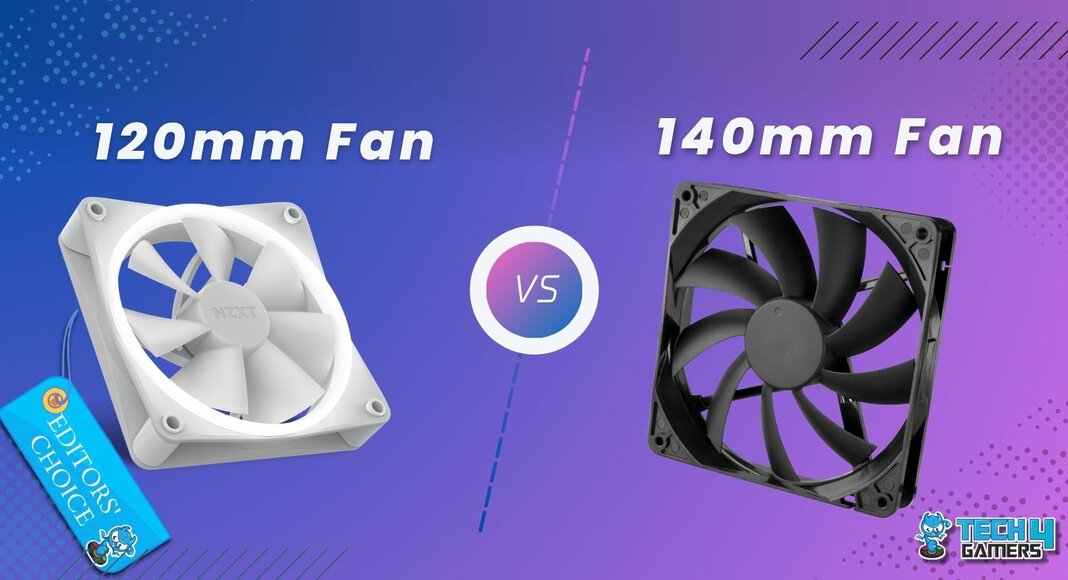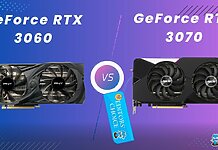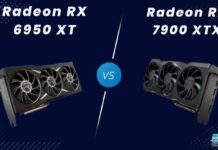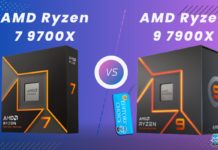120mm AIO
Rated: 8.5/10
140mm AIO
Rated: 8/10
Pros And Cons
| Platforms | Pros | Cons |
|---|---|---|
| 120mm AIO | ✅ Cheaper ✅ Runs Faster | ❌ Makes more noise |
| 280mm AIO | ✅ Higher Static Pressure ✅ Better cooling. | ❌ Expensive |
- 120mm is much common fan size that can fit in most cases.
- 120mm fans tend to be much cheaper compared to most 140mm fans.
- 140mm fans tend to perform better than 120mm fans on average.
- 140mm fans are also much quieter. However, they can only fit in certain casings.
Comparison Table
| Model | Deepcool 140mm Fan | Deepcool 120mm Fan |
|---|---|---|
| Fan Dimensions | 140×140×25 mm | 120×120×25 mm |
| Fan Speed | 400~1600 RPM±10% | 500~1800 RPM±10% |
| Fan Airflow | 97.03 CFM | 69.34 CFM |
| Fan Air Pressure | 2.00 mmAq | 2.33 mmAq |
| Fan Noise | ≤39.8 dB(A) | ≤32 dB(A) |
| Fan Rated Voltage | 12 VDC | 12 VDC |
| Fan Rated Current | 0.3 A | 0.15 A |
| Fan Power Consumption | 3.6 W | 1.8 W |
| LED Type | Addressable RGB LED | Addressable RGB LED |
| LED Connector | 3-pin(+5V-D-G) | 3-pin(+5V-D-G) |
| LED Rated Voltage | 5 VDC | 5 VDC |
Architectural Differences
- Cooling Efficiency: 140mm fans are expected to have an edge in terms of cooling efficiency, as they have a larger surface area to play around with.
- Fan Dimensions: 120mm fans generally have a length and width of 120mm, with a thickness of 25mm. Standard 140mm fans usually have a length and width of 140mm, with a thickness of 25mm. RGB fans tend to be a little thicker.
- Noise Levels: 140mm fans win in this regard, as they don’t need to run as fast as 120mm fans to provide adequate cooling, hence they run quieter.
When choosing a cooling solution for your PC, the dilemma you generally face is, what fan size should you go with? The two most common fan sizes available in the market are 120mm and 140mm fans. Today, we will be doing a battle between 120mm vs 140mm case fans.
120mm Vs 140mm Case Fans Comparison
Let us compare the two most readily available fan sizes in a number of general categories and see which is better in each.
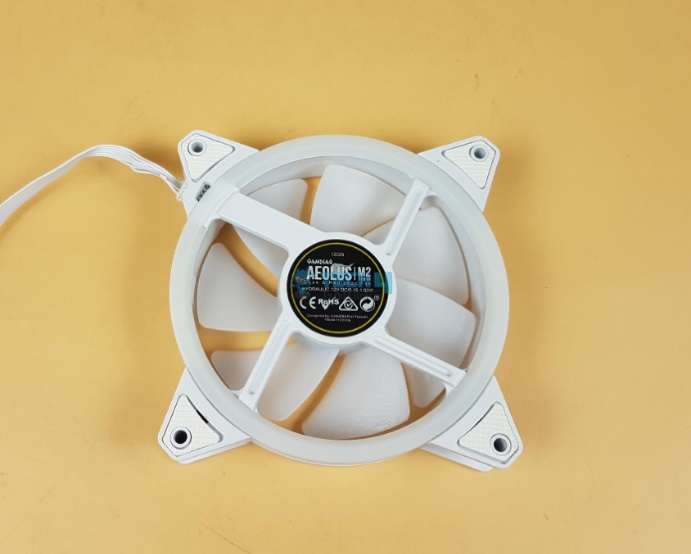
Cooling Performance
In terms of pure cooling performance, 140mm fans will always come up ahead if there are no external factors. This is simply because they occupy a considerable amount of space, which allows them to dissipate heat more efficiently.
Most 140mm fans tend to dominate CFM ratings compared to 120mm fans, which is solely because of their greater surface area and longer blades. Long story short, 140mm fans will almost always perform better than 120mm in terms of cooling.
Compatibility
It is easy to recommend a 120mm fan because almost every casing in the world will support it. Whether it’s an HTPC case, a mini ITX, a micro ATX, or a full-sized ATX case, A 120mm fan will be compatible with all of them.
Many bigger-sized ATX and Micro ATX casings support 140mm fans since it’s usually gamers and enthusiasts that demand the cooling 140mm fans provide. For an average user, 120mm fans will do just fine.
Noise Levels
In this regard, 140mm comes the head of 120mm as it has been observed to stay quieter. This is because 140mm fans can run on a lower rpm than 120mm fans while maintaining better thermals.
They do not have to move as fast in order to maintain optimal airflow. Their superior fan blades can suck more air while running at lower speeds.
Fan Speed
120mm fans tend to be much faster than 140mm fans as they run at 1200 rpm compared to 1000 rpm on 140mm. However, the larger surface area and fan blades give 140mm fans an edge in cooling performance, as it does not need to spin as fast as a 120mm fan to dissipate heat and maintain optimal airflow.
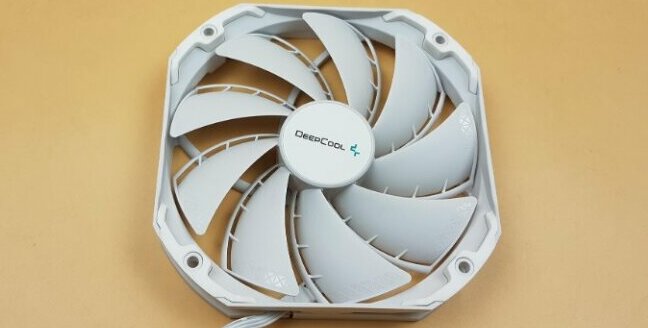
Pricing
If you are on a budget, then 120mm is easily the better option for you. It is the better value for the money because it can do most of what a 140mm fan does while costing less. A 140mm fan will always cost more compared to a 120mm fan.
However, if you are not on a budget and you are someone who likes to constantly test the limit of their PC, then investing in the bigger 140mm fans is absolutely worth it.
120mm Vs 140mm Case: Which One To Choose?
120mm fans: One of the biggest and obvious benefits of going with a 120mm fan is its insane compatibility. Another benefit is that they are a better bang for the buck. They cost significantly less than the bigger 140mm fans, and anyone who is on a budget is advised to look for 120mm fans.
140mm fans: 140mm fans tend to be 15% bigger, on average. The bigger surface area allows them to dissipate more heat and ensure a better airflow inside your case. Another reason one might prefer 140mm fans over 120mm is that they run comparatively quieter.
120mm is a much more compact size that will fit most cases. These fans are also cheaper and have better value for the money. 140mm fans are larger than 120mm fans. Due to them being large, they are considerably better at cooling as well. They also manage to stay quiet.
Thank you! Please share your positive feedback. 🔋
How could we improve this post? Please Help us. 😔
[Comparisons Expert]
Abdemanaf is a skilled creative writer who has been honing his craft since 2011. While initially working in different fields, he found a passion for technology and has been exploring the tech world since early 2015. Over the years, he has developed an in-depth knowledge of the latest tech trends and product offerings by various companies.
Abdemanaf’s writing reflects his analytical mindset and ability to think critically. He has a knack for breaking down complex technical information into easily digestible pieces, making his articles engaging and accessible to readers from all backgrounds. In February 2022, he joined Tech4Gamers as a blog and product comparison writer, where he has been able to hone his skills further.
As a writer, Abdemanaf is dedicated to staying up-to-date with the latest technological advancements and trends, enabling him to provide readers with the most relevant and accurate information. He is always eager to learn more and is constantly seeking new challenges to improve his skills.
Get In Touch: manaf@tech4gamers.com


